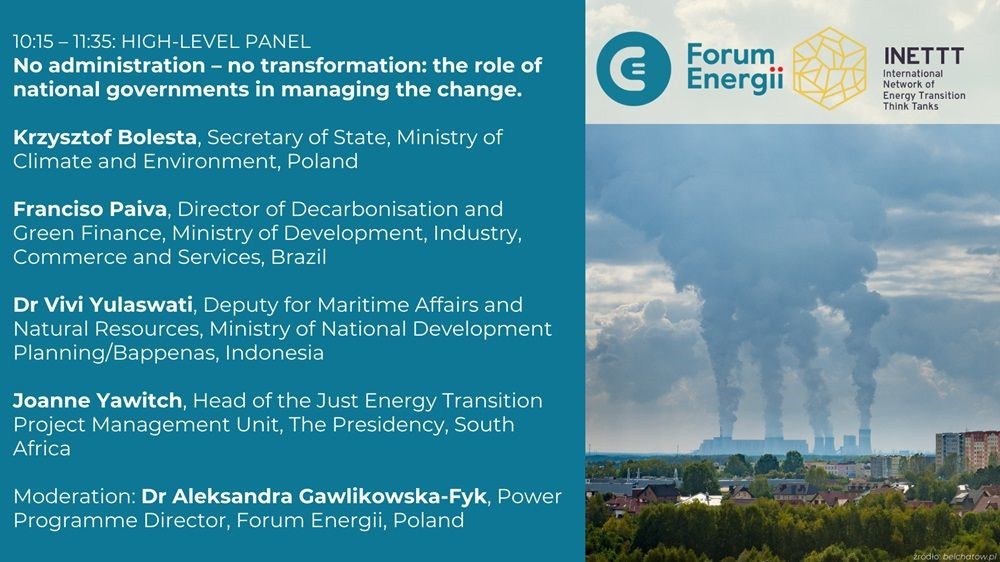Warsaw, September 12, 2024 – A conference of energy think tanks affiliated with the International Network of Energy Transition Think Tanks (INETTT) brought together global experts to discuss challenges and opportunities in a just energy transition. Under the theme “Many Paths, One Goal,” participants shared experiences and sought solutions that could accelerate progress globally while providing local solutions.
The conference, organized by the Energy Forum under the Honorary Patronage of the Minister of Climate and Environment of the Republic of Poland, brought together think tanks from various countries, including Mexico, Brazil, Poland, Germany, Turkey, South Africa and the United States.
The spotlight was on a speech by Judith Kirton-Darling, General Secretary of IndustriAll Europe, a trade union association representing workers in the manufacturing, mining and energy sectors from 38 European countries. Kirton-Darling’s speech was significant, as she stressed the need to involve communities early in the energy transition decision-making process to ensure workers and local communities are supported in the process. “We didn’t create a space for them to dialogue beforehand. We treat the social side of the transition as an afterthought, and we could be smarter and treat it as an integral part of the process,” she said, pointing to the need for early community involvement in the decision-making process.
The conference stressed that the share of renewable energy sources (RES) in Poland’s energy mix is expected to reach 60% by 2030, and 70% by 2040. This ambitious plan involves creating new jobs where we will be losing them, Deputy Climate and Environment Minister Krzysztof Bolesta stressed.
Sofia Perelli-Rocco of Bloomberg New Energy Finance noted that renewable energy must not only replace the current electricity generation system but also meet the growing electricity demand. She predicted that by 2050 demand for electricity will triple, posing a major challenge.
Malgorzata Misiak from the FST Department of the Marshal’s Office of the Lodz Voivodeship told of experiences in Belchatow, where residents were surprised by information about transformation funds because they did not feel the need for change. This underscores the importance of clear communication and frank conversations about transformation with local communities.
Katarzyna Pełczyńska Nałęcz of the Ministry of Funds and Regional Policy expressed hope that Poland will not only cope with the challenges of climate change but also benefit from the energy transition process. To this end, five Polish voivodeships will receive nearly €4 billion for job retention and retraining.
Dr Joanna Maćkowiak-Pandera of the Energy Forum concluded that despite the different challenges on different continents, there is an inspiring and refreshing thought about common goals and the need for local solutions.
The conference ended with an optimistic vision that despite the diversity of paths, there is one common goal – a just energy transition that is not only possible but necessary for the future of generations to come.

